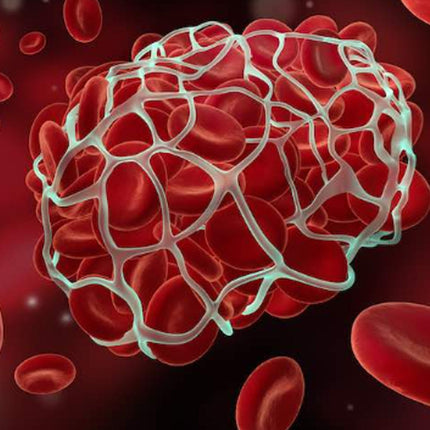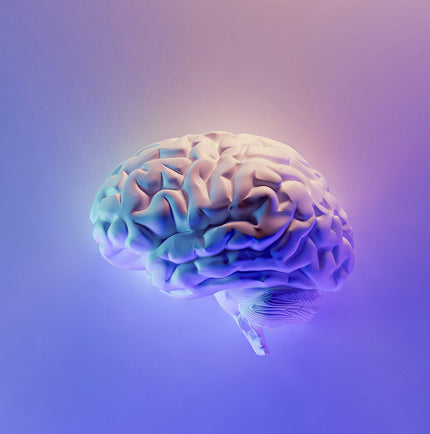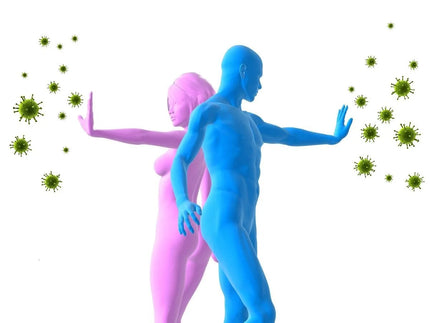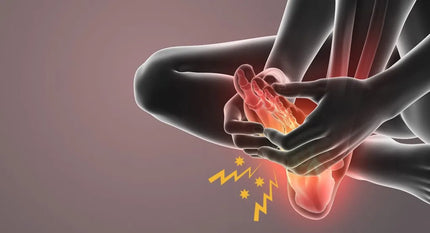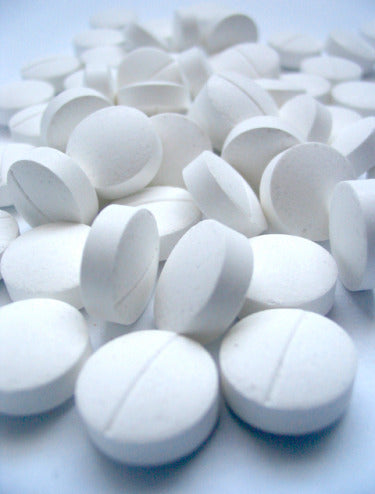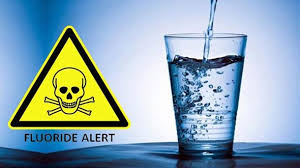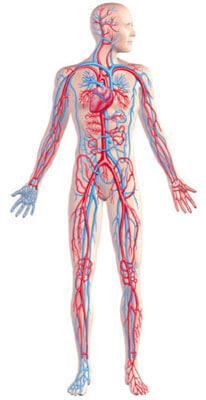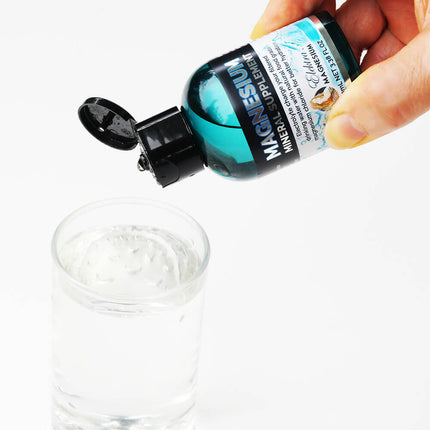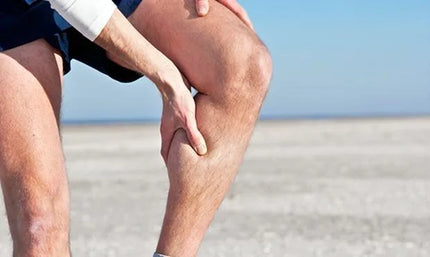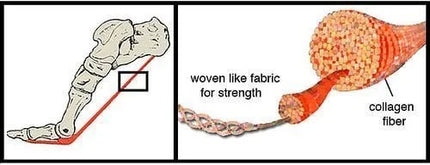Tax included and shipping calculated at checkout
Both magnesium and massage therapy have important health benefits for blood circulation, waste clearance and muscle recovery, as well as alleviation of anxiety and stress. Magnesium massage supercharges health benefits by promoting pain relief, stress relief, faster recovery from injury, bolstering the immune system, and prevention of premature ageing.
As magnesium is a natural anxiolytic 1 2 and anti-inflammatory, it supercharges your massage to achieve a powerful relaxation effect, dampening down stress hormones, and speeding up healing and recovery. When combining magnesium uptake with massage, you have a massive powerhouse to protect and support health and the immune system.
Benefits of magnesium massage include relief from symptoms of:
- anxiety and stress
- diabetes and metabolic syndrome
- cardiovascular ailments
- pain and muscle tension (including Inflammatory conditions like fibromyalgia)
- nervous system disorders
- skin disorders
- blood circulation problems
- urinary, digestive and detox issues
- sleep problems
- immune disorders
Regular massage sessions are helpful to maintain physical and mental wellness. For millennia the practice of massage has been used for health and wellbeing in cultures all over the world (eastern and western). It was one of the earliest treatments known to alleviate pain, as it helps to relieve stress and tension. The practice of massage promotes healing and recovery from injury, exercise, or sickness by mechanical stimulation of the skeletal muscles, blood and lymph circulation. It’s also an excellent way to recover from stress, as it calms the central nervous system.
The body digests food to absorb nutrition (as well as rebuilds itself) only when relaxed and not under stress. This ‘rest and digest’ autonomic state is called ‘parasympathetic’ (as opposed to the stress response of ‘sympathetic’ state). Without enough parasympathetic status we can’t digest food properly, which can leave us short on nutrients and also cause symptoms of Irritable Bowel Syndrome, constipation, or SIBO (Small Intestinal Bacterial Overgrowth).
Recovery from stress and injury requires a certain amount of rest and deep relaxation for optimal healing to take place. Unfortunately these days, many people are dealing with chronic unrelenting stress, which makes it hard to get enough ‘rest and recovery’ time.
Faster healing requires control of stress in the recovery phase
When you work hard, exercise hard and punish your muscles, they seem to retaliate with their own backlash of pain during the recovery phase. This is because the excessive muscle contractions and repetitive stresses cause micro damage to the muscle fibre cells, and subsequently need to be repaired. The body usually recovers well from moderate exercise, and re-builds itself stronger, but we can also overdo the exercise and cause damage that doesn’t easily heal. The trick is to get the balance right.

The immune system is activated when we have any kind of tissue damage. This can be from exercise stress, or the stress of chemicals and acidic by-products.
White blood cells move in to remove wastes and any pathogens that may also be present. This is the inflammation response of swelling and pain. The white cells, acids and debris need to be neutralised and cleared quickly after their job is done, so as to avoid too much agony in repair process. Ph balance needs to be restored. This cleansing and repair process requires ATP (adenosine triphosphate) production by mitochondria, which happens to need magnesium to make ATP.
If pain levels get too high, stress hormones don't subside, which then inhibit the healing process. A downward stress spiral can develop. Magnesium however can subdue stress hormones and calm the nervous system, thereby also having a calming effect on inflammation. 3
The detox process and building of new cells requires extra antioxidant nutritional support to help re-balance cell pH, including oxygen delivery, hydration, electrolyte replacement, and especially a lot of magnesium.
The great benefit of gentle massage pressure for recovery is that it stimulates blood and lymph circulation. The blood delivers oxygen and nutrients to stoke the fires of metabolism and regeneration, and the lymph works as our protein waste disposal system (ie. a sewage system).
Because the lymph system doesn’t have its own pump like the heart for blood circulation, waste disposal via lymph relies on mechanical movement of muscles, fascia and ligaments predominantly in limbs, as well as via pressure to skin. If you are bed-ridden it’s even more important to use massage to nudge the detox and elimination system, and thereby improve recovery time.
A 2021 study showed that pressure and cyclic compression of the affected muscle areas, as in massage of tight sore muscles, sped up the recovery process by clearing out the white blood cells faster. 1
“Cyclic compressive loading within a specific range of forces substantially improves functional recovery of severely injured muscle in mice. This improvement is attributable in part to rapid clearance of neutrophil populations and neutrophil-mediated factors, which otherwise may impede myogenesis.” (Myogenesis is the formation of skeletal muscular tissue).
Not only can wastes be removed faster with massage, but another study from the Journal of Strength and Conditioning Research found that cell regeneration, muscle strength and your quick sense of muscle position in movement also improves. This demonstrates that the nerve conduction super highways are enhanced by massage, and is obviously very important for athletes and those doing martial arts! However, it is noted that less than 15 minutes was not as effective as a longer session. 2
Magnesium massage relaxes cramps and restless legs
Magnesium is particularly important in the detox and repair of tissue cells because of its primary role in mitochondrial production of adenosine triphosphate (ATP). ATP is our electrical energy currency that underpins metabolism and drives the detox, immune and cell-building systems.
Magnesium also controls calcium. If magnesium gets too low, calcium can become a bully with free calcium leaching out of the bones and settling in soft tissue and joints to cause stiffening and strain of muscles and joints. Magnesium, via parathyroid regulation 7, helps calcium to move into bones instead of where it shouldn’t be, such as excessively deposited in the soft tissue, blood and tubules of the body. Too much free calcium in the body is commonly called hypercalcaemia. As magnesium is a calcium antagonist, it can play a vital role in calcium homeostasis.


Calcium is ‘allowed’ to be used for muscle contraction and firing of neurons, Calcium’s primary role is for muscle contraction and the firing of neurons. During the recovery phase calcium is quickly retreated by magnesium. If not enough magnesium is available, we get a situation of over-firing of neurons or excessive cramping and twitching of muscles. Or you may have a restless feeling like there are ants in your pants and you can’t sit still. Leg muscles may spasm at night or suffer with a nervous crawling sensation commonly referred to as ‘restless leg syndrome’.
Muscles may feel like rocks when there is too much calcium and not enough magnesium, unable to relax or allow proper blood circulation. The whole muscle electrical conduction system can be affected. Repetitive stress injuries like tennis elbow and frozen shoulder are primary examples of the calcium moving in to stiffen muscle fibres and restrict movement, but not retreating due to magnesium deficiency. Dehydration is also commonly associated with high calcium and low magnesium status. Headaches and migraines can result, but can be relieved by sufficient magnesium and water (rehydration).
Hypertension – high blood pressure

Free calcium that settles on arterial linings causes hypertension by stiffening the linings. 8 9 Not only can magnesium control excess calcium in blood, but it can cause nitric oxide to expand the arteries OR it can work independently to expand arterial walls, and thus reduce blood pressure. 10 Magnesium also helps the smooth muscle of the endothelial linings of blood vessels stay flexible, stretchy and resilient via the production of collagen and elastin of the mesh matrix that forms the structure of the lining. 11
If magnesium-deprived, the tiny capillaries at extremities can also get too stiff, thereby inhibiting enough blood flow to the ends, which causes hypoxia, numbness or neuropathic pain. 12
Not only is magnesium deficiency strongly correlated with high blood pressure (hypertension), but it can also have the reverse effect of hypotension (very low blood pressure). This is often associated with thyroid problems and anemia. Magnesium, along with iodine, supports the thyroid, plasma hydration and red blood cell oxygen-carrying capacity. Without enough magnesium metabolism slows, blood volume can drop, and therefore electrical conductance can weaken. If it becomes more severe it can result in heart arrhythmia (irregular heart beat), including tachycardia, bradycardia or atrial fibrillation. 13
When you have the magnesium you need, your body can better regulate blood pressure and keep it in the normal range. In this sense, magnesium works as an adaptogenic nutrient, supplying energy to all systems.
Electrolyte balance and hydration
Note that people can become excessively dehydrated as magnesium levels drop, because magnesium attracts water and helps to keep the intracellular environment hydrated. Magnesium has a strong affinity with water. The magnesium molecule has the largest potential hydration shell of any cation, able to expand in size with extra water by up to 400%. Magnesium also helps to regulate the working balance of the other electrolytes – like the conductor of an orchestra. 14
The magnesium distribution in the body is: 53% in bones, 46% in muscles, and 1% in blood. Blood tests are not accurate to determine tissue levels of magnesium in the body because the tissue cells can sacrifice some of their magnesium and give it to the blood in order to keep blood levels in the normal range. You would need to test tissue cells, as in an EXA test, hair sample or RBC analysis, to get a more accurate result.
Magnesium is located in greater amounts wherever you have the need for a lot of metabolism and production of ATP energy. This happens in the bone marrow with production of platelets, red and white blood cells, as well as new bone cells. It happens in the brain, which has a very high electrical output, and it also happens extensively in muscles. Muscles use a lot of electricity for work in contracting and for repair after excessive exercise. They also need a lot of water in the expansion and contraction process. Magnesium is crucial in every step of the way.
In addition to electrolyte balance, magnesium is vital to the operation of the cell membrane, as it holds the charge that keeps the two phospholipid layers of the cell membrane in tact. The channels of the membrane expand and contract to release toxins and receive nutrients.
As too much magnesium is lost and acidity increases, the charge in the cell wall drops (depolarises) and the membrane becomes weaker and leaky. Water is lost from the cell, increasing the dehydration effect of the acid condition. 15

Sometimes the thirst mechanism in people is not working properly and they don’t feel thirst, but are obviously suffering dehydration symptoms. In this case we need to drink adequate water, even if we don’t feel the thirst. An average amount for an adult is about 2.5 to 3 litres a day. Those who perspire a lot may need a lot more than this. The body needs water to flush out toxins and to restore pH balance.
Each cell operates like a mini battery: If you let the water and minerals drop, the voltage of the cell drops, which lowers metabolism and energy output. The muscle therefore weakens, electrical energy can’t flow smoothly, and the muscle can become jittery and unstable.
It’s important to replace electrolytes when dehydrated from excessive perspiration. Sweat contains lymphatic system waste products, but can also contain a lot of vital electrolytes including potassium, magnesium, sodium and calcium. A quick way to replace these vital electrolytes is to make up a quick drink of mineral water using filtered water with added magnesium chloride salts (food grade) and an optional touch of whole (unprocessed) sea salt for the extra sodium and trace minerals. (See here for instructions). This mimics natural spring water and charges the water with electrolyte power. Drink as much as you need to make you feel recovered. You will feel more relaxed, calm and clear-headed as a result of restoring electrolytes and water.
Other beverages are just liquid foods and must first be digested. They often also contain too much sugar, which is not recommended to quench thirst. In fact, sugars just contribute to more dehydration because the by-product of sugar metabolism is acid. They simply cannot compete with water and minerals for fast recovery from dehydration. Only water is the universal cleanser and solvent and only water has the power to flush and detox cells properly. Only water with electrolytes can re-charge the blood supply and muscles to restore balance and electrical conductivity. We are made up of mostly water, and the minerals hold the bio-electrical charge of the water that makes up cell and blood plasma.
Magnesium Massage: A blissful experience with antiageing benefits

The magnesium chloride and plant oils in Magnesium Cream or Magnesium Charge Lotion, are ideal for use in massage, and provide protective natural antiageing skin care benefits as well. You can get a lot more magnesium into you transdermally 16 17 compared to having to digest tablets or powders. You don’t have to wait hours for digestion and the results are much faster via skin. 18 It feels very relaxing and restorative.
The skin laps up these vital nutrients in the epidermal layer, making it plump up with hydration, vitality and a more youthful complexion. A synergistic group of plant oils and butters help the transit of magnesium into the epidermis to protect and help the skin barrier retain moisture and condition. You will love how smooth and luxurious magnesium massage makes your skin feel - let alone how much relief your muscles get. Sheer bliss.
Heat treatment enhances the speed of penetration of the magnesium into the muscles via the blood circulation. The massage itself creates heat via friction, however hot rocks, infrared mats (or similar) can also be used.
From this skin reservoir the blood cells of the dermis underneath have access to draw on the magnesium that is needed. The skin in this way acts as smorgasbord for the body to choose what it needs, without risk of overdose. Nothing is being artificially ‘pushed’ into the body. You could be massaging people all day long with magnesium creams or lotion and not get too much into your own body. The nutrients just sit in your skin reservoir until needed. It’s a perfectly natural system. The real danger is in not getting enough, rather than too much.
Recharge and open up the vascular and nerve super highways with magnesium massage
As you gently massage, separate and loosen muscle fibres, the action of friction and skin pressure increases blood flow to the area by releasing tension, which then delivers more oxygen and nutrients to cells.
As the reach of the capillary network is enhanced by the massage, it helps to drive the magnesium deeper into the tissue fibres for faster relaxation effects. Ligaments and joints start to let go and extend better as magnesium improves flexibility, and those muscle ‘rocks’ become pebbles, gradually diminishing altogether as the magnesium and extra hydration kick in to bring back flexibility and suppleness.
Heat via hot water bottle, infrared lamp, heat-wheat pillow or heated stones also improves the penetration of the magnesium ions by stimulating more blood flow to extremities.
The nervous system, being reliant on bio-electrical conductivity, also benefits via improved connections and signalling as the cell highways of the muscle fibres open up to greater traffic and oxygen delivery. Lymph clearance of wastes improves. Oedema and inflammation subside, and the vascular system runs freely and smoothly again. We feel calmer and more relaxed, start to think more clearly, and sleep improves.

Regular magnesium massage therefore does wonders to help us bounce back from stress, and to recover and feel the joy of life pulsing through all our vessels and circuits. Give yourself over to the wonders of a magnesium massage and feel the difference it makes. No need to feel guilty about this hedonistic ‘healthy’ indulgence!
By Sandy Sanderson © 2021 www.elektramagnesium.com.au
References
(1) Poleszak, E.; Szewczyk, B.; Kędzierska, E.; Wlaź, P.; Pilc, A.; Nowak, G. Antidepressant- and Anxiolytic-like Activity of Magnesium in Mice. Pharmacology Biochemistry and Behavior 2004, 78 (1), 7–12. https://doi.org/10.1016/j.pbb.2004.01.006.
(2) Poleszak, E. Benzodiazepine/GABA(A) Receptors Are Involved in Magnesium-Induced Anxiolytic-like Behavior in Mice. Pharmacol Rep 2008, 60 (4), 483–489.
(3) Libako, P.; Nowacki, W.; Rock, E.; Rayssiguier, Y.; Mazur, A. Phagocyte Priming by Low Magnesium Status: Input to the Enhanced Inflammatory and Oxidative Stress Responses. Magnes Res 2010, 23 (1), 1–4. https://doi.org/10.1684/mrh.2009.0201.
(4) Tousoulis, D.; Davies, G.; Stefanadis, C.; Toutouzas, P.; Ambrose, J. A. Inflammatory and Thrombotic Mechanisms in Coronary Atherosclerosis. Heart 2003, 89 (9), 993. https://doi.org/10.1136/heart.89.9.993.
(5) Seo, B. R.; Payne, C.; McNamara, S.; Freedman, B.; Kwee, B.; Nam, S.; Lázaro, I.; Darnell, M.; Alvarez, J.; Dellacherie, M.; Vandenburgh, H.; Walsh, C.; Mooney, D. Skeletal Muscle Regeneration with Robotic Actuation-Mediated Clearance of Neutrophils. Science translational medicine 2021, 13, eabe8868. https://doi.org/10.1126/scitranslmed.abe8868.
(6) Shin, M.-S.; Sung, Y.-H. Effects of Massage on Muscular Strength and Proprioception After Exercise-Induced Muscle Damage. The Journal of Strength & Conditioning Research 2015, 29 (8), 2255–2260. https://doi.org/10.1519/JSC.0000000000000688.
(7) Rodríguez-Ortiz, M. E.; Canalejo, A.; Herencia, C.; Martínez-Moreno, J. M.; Peralta-Ramírez, A.; Perez-Martinez, P.; Navarro-González, J. F.; Rodríguez, M.; Peter, M.; Gundlach, K.; Steppan, S.; Passlick-Deetjen, J.; Muñoz-Castañeda, J. R.; Almaden, Y. Magnesium Modulates Parathyroid Hormone Secretion and Upregulates Parathyroid Receptor Expression at Moderately Low Calcium Concentration. Nephrol Dial Transplant 2014, 29 (2), 282–289. https://doi.org/10.1093/ndt/gft400.
(8) Kostov, K.; Halacheva, L. Role of Magnesium Deficiency in Promoting Atherosclerosis, Endothelial Dysfunction, and Arterial Stiffening as Risk Factors for Hypertension. International journal of molecular sciences 2018, 19 (6), 1724. https://doi.org/10.3390/ijms19061724.
(9) Kolte, D.; Vijayaraghavan, K.; Khera, S.; Sica, D.; H. Frishman, W. Role of Magnesium in Cardiovascular Diseases; 2014; Vol. 22.
(10) Teragawa, H.; Kato, M.; Yamagata, T.; Matsuura, H.; Kajiyama, G. Magnesium Causes Nitric Oxide Independent Coronary Artery Vasodilation in Humans. Heart (British Cardiac Society) 2001, 86 (2), 212–216. https://doi.org/10.1136/heart.86.2.212.
(11) Senni, K.; Foucault-Bertaud, A.; Godeau, G. Magnesium and Connective Tissue. Magnes Res 2003, 16 (1), 70–74.
(12) Pittman, R. N. The Circulatory System and Oxygen Transport; Morgan & Claypool Life Sciences, 2011.
(13) Mildred S. Seelig. Magnesium Deficiency in the Pathogenesis of Disease; Springer US, 1980.
(14) Ahmed, F.; Mohammed, A. Magnesium: The Forgotten Electrolyte—A Review on Hypomagnesemia. Med Sci (Basel) 2019, 7 (4), 56. https://doi.org/10.3390/medsci7040056.
(15) Belin, R. J.; He, K. Magnesium Physiology and Pathogenic Mechanisms That Contribute to the Development of the Metabolic Syndrome. Magnes Res 2007, 20 (2), 107–129.
(16) Chandrasekaran, N. C.; Weir, C.; Alfraji, S.; Grice, J.; Roberts, M. S.; Barnard, R. T. Effects of Magnesium Deficiency--More than Skin Deep. Experimental biology and medicine (Maywood, N.J.) 2014, 239 (10), 1280–1291. https://doi.org/10.1177/1535370214537745.
(17) Engen, D. J.; McAllister, S. J.; Whipple, M. O.; Cha, S. S.; Dion, L. J.; Vincent, A.; Bauer, B. A.; Wahner-Roedler, D. L. Effects of Transdermal Magnesium Chloride on Quality of Life for Patients with Fibromyalgia: A Feasibility Study. J Integr Med 2015, 13 (5), 306–313. https://doi.org/10.1016/s2095-4964(15)60195-9.
(18) Sang-ngern, M.; Byoung, J.; Mazen, H.; Leng Chee, C.; Rosanoff, A.; Mahavir, C. Preliminary Study of Transdermal Permeation of Magnesium Cream Formulations across Skin; 2012.








